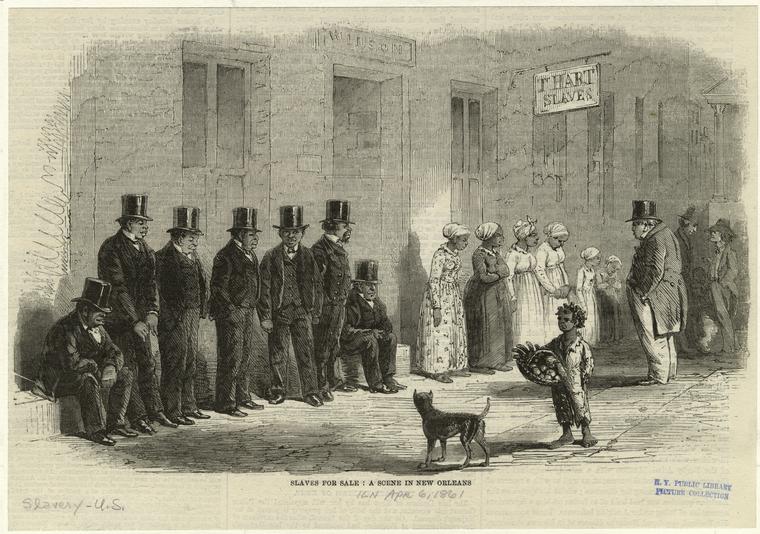![See page for author [Public domain], via Wikimedia Commons ST-slaves](http://crypticphilosopher.com/wp-content/uploads/2013/03/ST-slaves.jpg)
I have no idea what conservatives think would have happened without slavery.
I’m having a hard time believing that this guy, who went on a
bizarre rant in defense of slavery and only went downhill from there, is for real.
A panel at the Conservative Political Action Committee on Republican minority outreach exploded into controversy on Friday afternoon, after an audience member defended slavery as good for African-Americans.
The exchange occurred after an audience member from North Carolina, 30-year-old Scott Terry, asked whether Republicans could endorse races remaining separate but equal. After the presenter, K. Carl Smith of Frederick Douglass Republicans, answered by referencing a letter by Frederick Douglass forgiving his former master, the audience member said “For what? For feeding him and housing him?” Several people in the audience cheered and applauded Terry’s outburst.
ThinkProgress generally seems to have good reporting, so let’s assume for argument’s sake that its reporting on this story is accurate. Because that’s not all, folks:
When asked by ThinkProgress if he’d accept a society where African-Americans were permanently subservient to whites, he said “I’d be fine with that.” He also claimed that African-Americans “should be allowed to vote in Africa,” and that “all the Tea Parties” were concerned with the same racial problems that he was.
At one point, a woman challenged him on the Republican Party’s roots, to which Terry responded, “I didn’t know the legacy of the Republican Party included women correcting men in public.”
Look, I wouldn’t claim to be an expert on comedy, satire, or political subterfuge, but I’ve done a reasonable amount of comedy-related writing and performing in my life, such that I know a thing or two about creating a caricature of an opinion or attitude that you want to mock. The trick to creating a character who expresses or embodies a position that you want to lampoon is that you have to make that character over-the-top and believable at the same time. Have the character express opinions that might represent an absurd yet realistic extension of an actual opinion. The character has to be someone who could exist in our world.
At the moment, I am having a hard time believing that Scott Terry exists in our world.
By this, I mean that several possibilities occur to me:
- Terry is an earnest, if catastrophically misguided, young man, but the depths of his depraved beliefs make me wonder how he was able to hold these beliefs, wake up and get dressed in the morning, eat food with utensils, and get to the meeting hall, all without somehow hurting himself. You know, by walking directly into a brick wall because he thought it might be a special doorway reserved for white people or something.
- Terry is a James O’Keefe-caliber troll sent to make conservatives look like epic doucherockets. For the record, my opinion of James O’Keefe, based on what I have seen and read, rests somewhere around the level of inorganic material intertwined with forest undergrowth—no one really wants to come into contact with either it or the organic undergrowth, and unlike the organic stuff, it doesn’t even help trees grow. My point being, this is not meant to be a compliment for Mr. Terry.
I’m pretty sure this guy was for real, as much as it pains me to think that people younger than me think this way and are able to function in society. CPAC, after all, is the place where two white guys did a rap number last year and dropped an almost-N-bomb for comedic effect. The Republican Party boasts among their 2012 candidates a guy who thinks slavery was good for Africans because it meant that their descendants could live in the U.S. and not, you know, Africa. So yeah, I guess it’s plausible that a CPAC attendee would actually believe all the things that guy said.
Anyway, if an actual liberal wanted to smear conservatives by infiltrating and posing as a racist idiot, it would have been far more clever than this.
Photo credit: See page for author [Public domain], via Wikimedia Commons.


 John Derbyshire and I have something in common: I haven’t seen the movie
John Derbyshire and I have something in common: I haven’t seen the movie ![See page for author [Public domain], via Wikimedia Commons ST-slaves](http://crypticphilosopher.com/wp-content/uploads/2013/03/ST-slaves.jpg)